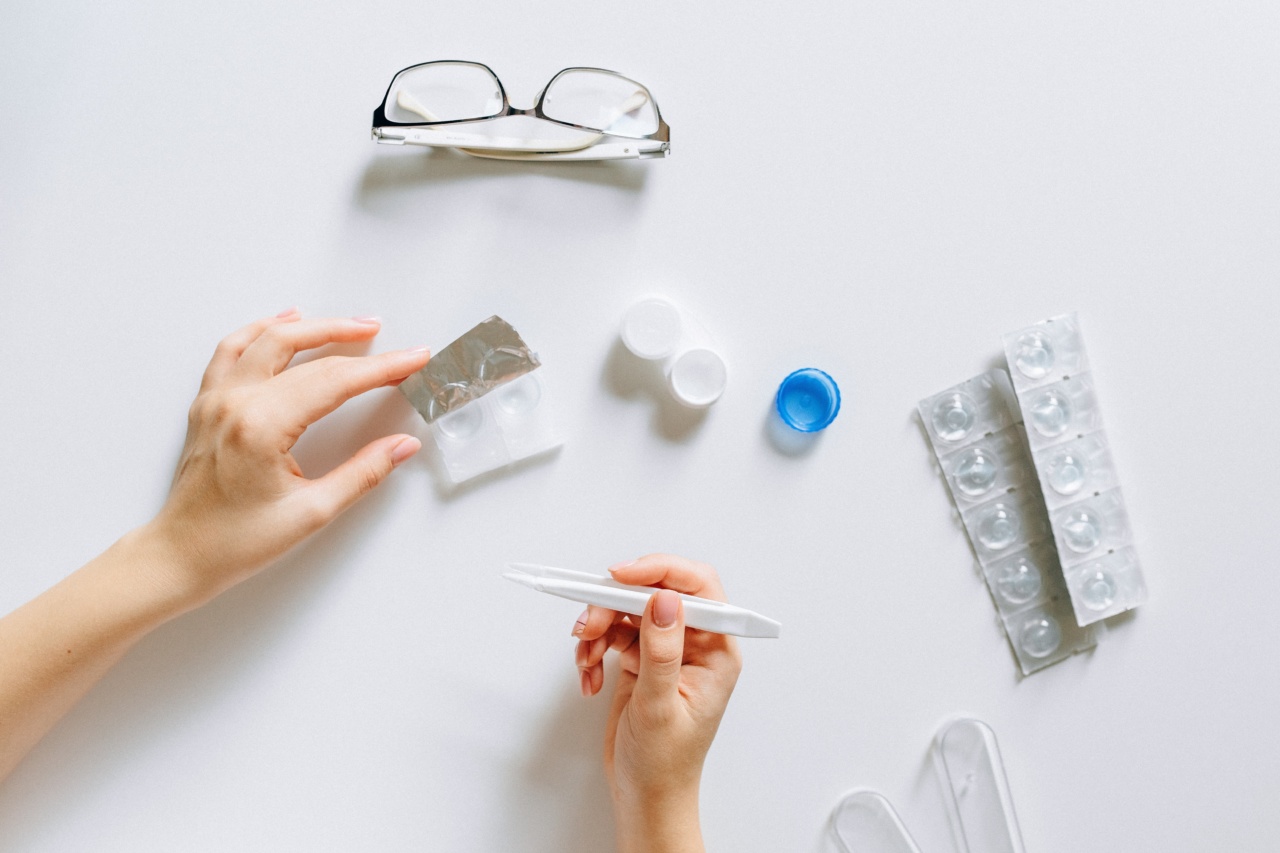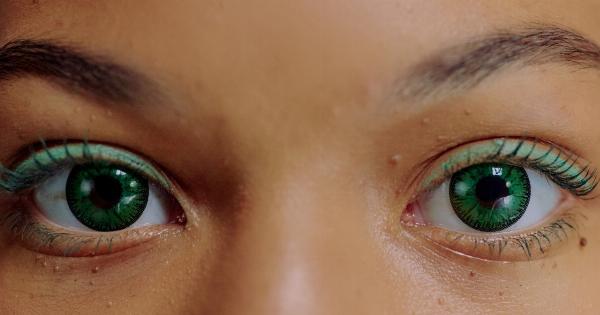For many people, contact lenses are a convenient and comfortable alternative to glasses. They allow you to see clearly without having to deal with the hassle of frames slipping down your nose or fogging up in humid weather.
However, there are certain times when it is best to avoid wearing contact lenses to protect your eye health. Here are some situations where you should opt for glasses instead:.
1. When You Have an Eye Infection
If you have an eye infection such as conjunctivitis (pink eye) or a corneal ulcer, it is best to avoid wearing contact lenses until the infection has cleared up.
Contact lenses can trap bacteria against the surface of your eye, making the infection worse and increasing the risk of complications. Additionally, if you continue to wear contact lenses while you have an eye infection, you could spread the infection to others who come into contact with your lenses or to other parts of your own body.
2. When You Have Dry or Irritated Eyes
Wearing contact lenses requires a certain level of moisture on the surface of your eye to ensure comfort and clarity. However, if you have dry eyes or other conditions that cause irritation, wearing contacts can make your symptoms worse.
Your eyes may feel scratchy, itchy, or uncomfortable, and you may even develop redness or inflammation. If you experience these symptoms, it’s important to take a break from your contact lenses and use lubricating eye drops or other treatments to soothe your eyes.
3. When You Have a Scratched or Injured Cornea
If you have a scratched or injured cornea, such as from rubbing your eye too hard or getting hit in the eye, wearing contact lenses can further irritate the damaged tissue.
It’s best to avoid wearing contacts until your cornea has fully healed to prevent further injury or infection. Your eye doctor can advise you on the best course of treatment for corneal injuries.
4. When You Are Swimming or Bathing
Although contact lenses are a popular choice for swimmers who don’t want to wear glasses in the water, it is generally not recommended to wear contacts while swimming or bathing.
This is because water, including chlorinated pool water and salt water, can harbor bacteria and other microbes that can get trapped against the surface of your eye behind your contacts. Additionally, water can cause your contact lenses to swell or change shape, leading to discomfort or even vision loss. If you must wear contact lenses while swimming, try wearing swim goggles over them to protect your eyes.
5. When You Are Using Certain Medications
Some medications can affect the surface of your eye and make wearing contact lenses more difficult or uncomfortable.
For example, antihistamines and some blood pressure medications can cause dry eyes or reduce tear production, while certain acne medications can make your eyes more sensitive to light and increase the risk of infection. If you are taking any medications, be sure to discuss their potential effects on your eyes with your doctor or eye care professional.
6. When You Have a Simple Eye Refraction
If you have a simple eye refraction, such as mild near- or farsightedness that is easily corrected with glasses, you may not need to wear contact lenses at all.
In fact, wearing glasses instead of contacts can minimize your risk of eye infections and other complications while still allowing you to see clearly. Your eye doctor can help you decide whether contacts or glasses are the best choice for your individual needs and lifestyle.
7. When Your Contact Lenses Are Damaged or Past Their Expiration Date
Finally, it’s important to recognize when it’s time to replace your contact lenses.
Wearing damaged or expired contact lenses can increase your risk of eye infections and other complications, as damaged lenses can irritate your eyes or trap bacteria against the surface. Additionally, contact lenses that are past their expiration date may not fit properly or may have changed shape, leading to discomfort or blurring of vision.
Always follow the recommended replacement schedule for your contact lenses, and replace them immediately if they become damaged or uncomfortable.






























